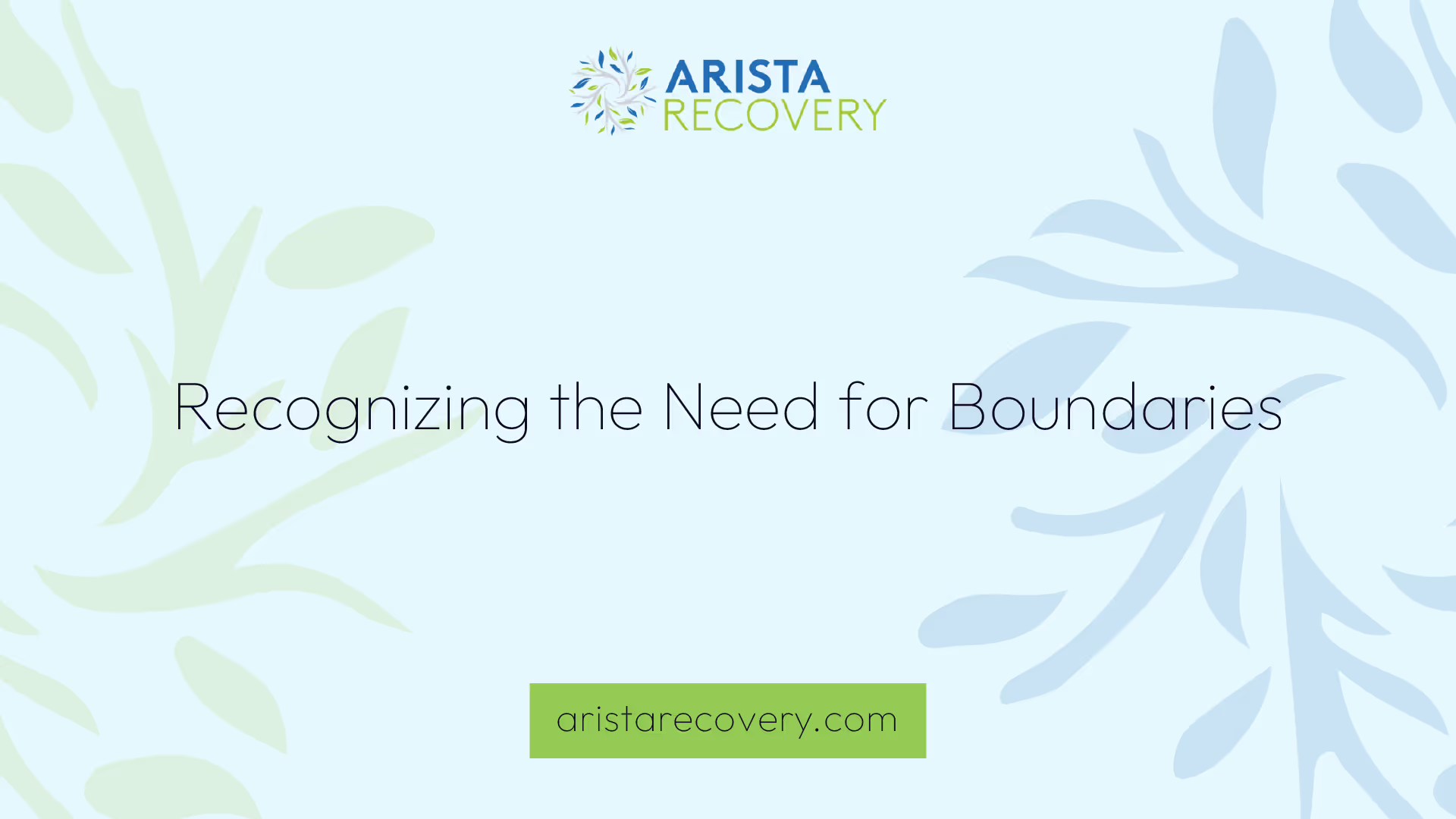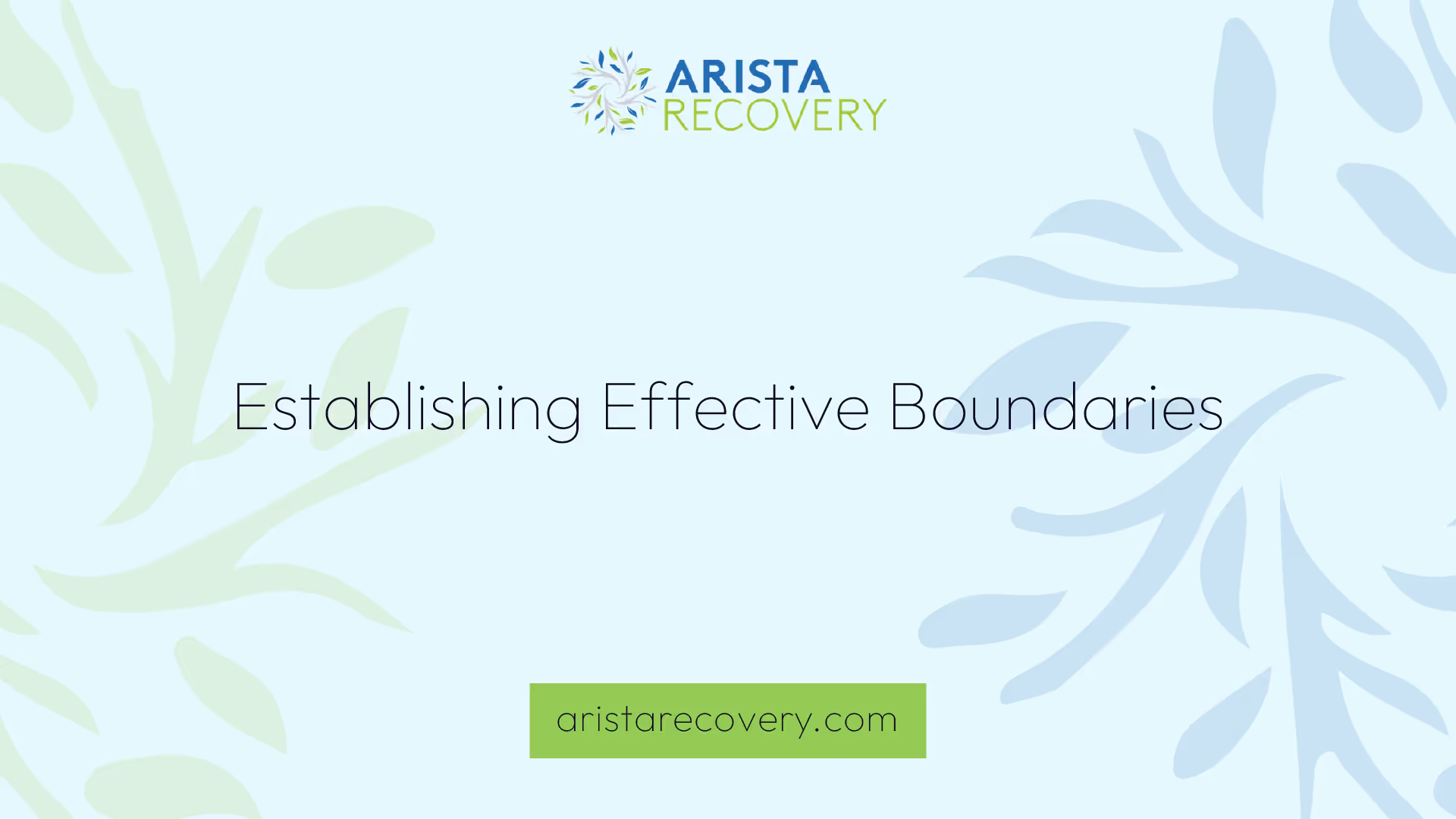
How to Set Boundaries with a Spouse Battlin with Alcoholism?
Understanding Alcoholism and Boundaries

Impact of Alcoholism on Spouses
Alcoholism can have devastating effects, not just on the individual struggling with the addiction, but also on their spouse and family. The consequences often include emotional and physical distress, financial difficulties, and legal issues. These impacts can create a toxic environment, leading to feelings of helplessness, frustration, and emotional exhaustion for the spouse. Understanding these effects is crucial for recognizing the need for boundaries.
Impact AreaDescriptionEmotional DistressSpouses may experience anxiety, depression, or anger due to their partner's behavior.Financial DifficultiesAlcoholism can lead to job loss or increased spending on alcohol, affecting family finances.Legal IssuesAlcohol-related incidents can result in legal problems, adding stress to the family dynamic.
Importance of Setting Boundaries
Setting boundaries is essential in any relationship, particularly when one spouse is battling alcoholism. Boundaries serve as guidelines for acceptable behavior, establish safety and respect, and provide structure and clarity. They are not punitive measures but rather tools for creating a healthier dynamic within the relationship.
Effective boundaries help in the following ways:
Recognizing behavior patterns in an alcoholic spouse and understanding the effects on the family are key signs indicating the need for boundaries to protect oneself and maintain a healthy relationship. Communicating needs and limits is essential for setting boundaries. It is important to emphasize that establishing boundaries is about creating a healthier dynamic, not punishment. For more insights on setting boundaries, consider exploring our article on how to set boundaries with spouse battling alcoholism.

Recognizing the Need for Boundaries
Understanding the behavior of an alcoholic spouse is critical for recognizing the need for boundaries in a relationship. This awareness can help protect oneself and maintain a healthier dynamic.
Behavior Patterns in Alcoholic Spouses
Alcoholic spouses often exhibit specific behavior patterns that can be detrimental to relationships. These behaviors may include:
Recognizing these patterns is vital. According to Urban Recovery, understanding these behaviors signals that boundaries are necessary to protect one's emotional well-being.
Effects on Family Dynamics
The impact of alcoholism extends beyond the individual to affect the entire family unit. Some common effects include:
Effect on Family DynamicsDescriptionIncreased TensionFrequent arguments and conflict can arise, creating a hostile environment.Emotional DistressFamily members may experience anxiety, depression, and feelings of helplessness.Trust IssuesBetrayal of trust due to broken promises or lies about drinking can erode relationships.Role ReversalChildren or other family members may take on adult responsibilities, leading to stress and resentment.
Understanding the profound impact of alcoholism on relationships is crucial for spouses seeking to set boundaries and create a healthier dynamic. This acknowledgment can empower individuals to establish limits that promote respect and protect their well-being. As highlighted by Prescott House, setting boundaries serves as a guideline for acceptable behavior, helping to maintain safety and clarity in the relationship.

Establishing Effective Boundaries
Setting boundaries with a spouse battling alcoholism is an essential step toward creating a healthier relationship. This process involves clear communication of needs and limits, as well as enforcing those boundaries with appropriate consequences.
Communicating Needs and Limits
Communicating needs and limits is a fundamental aspect of boundary setting. It is crucial for the spouse to express their expectations clearly, emphasizing that the aim is to foster a healthier dynamic rather than to punish the partner. This communication should focus on specific behaviors that are unacceptable and outline the desired changes.
A well-structured approach to communication might include the following steps:
By adopting this approach, the spouse can create a foundation for healthy boundaries. For more insights on managing relationships during recovery, visit our article on how does opioid agonist therapy work?.
Enforcing Boundaries with Consequences
Enforcing boundaries with consequences is critical in maintaining a healthy relationship. It helps to reinforce the importance of respecting boundaries and serves as a deterrent for future violations. Clear and realistic consequences should be defined when setting boundaries, ensuring that both partners understand the implications of crossing those limits.
Here are some key points to consider when establishing consequences:
Boundary ViolationConsequenceExcessive drinking during family timeA break from spending time together until a commitment to sobriety is madeVerbal abuse when intoxicatedA temporary separation until the spouse seeks helpIgnoring agreed-upon treatment plansSeeking professional counseling for the couple
Defining consequences not only encourages accountability but also helps the spouse battling alcoholism to understand the impact of their actions. Consistency in enforcing these boundaries is vital for promoting trust and stability within the relationship [1]. For more strategies on managing addiction, consider exploring our resources on what is buvidal used for? and leading treatment for opioid use disorder?.
Establishing and enforcing boundaries effectively can lead to a healthier relationship and encourage both partners to take responsibility for their actions.
Strategies for Setting Boundaries
Establishing boundaries with a spouse battling alcoholism requires careful planning and support. Here are two effective strategies to consider.
Seeking Professional Help
Engaging with professionals such as addiction specialists, therapists, or counselors is a crucial step when learning how to set boundaries with a spouse battling alcoholism. These experts can provide valuable guidance, insights into healthy communication techniques, and coping mechanisms that can help navigate the complexities of addiction.
Professional support can also help individuals understand the dynamics of addiction and how it affects relationships. For instance, therapists can assist in recognizing patterns of behavior that may be harmful and suggest practical strategies for establishing and maintaining boundaries. This professional guidance is essential for ensuring that the boundaries set are constructive and nurturing for both partners [2].
Flexibility and Adaptability
While it is important to establish clear boundaries, flexibility and adaptability are equally essential. Situations can change rapidly in relationships affected by alcoholism, and being rigid may lead to frustration or conflict. It is important for individuals to recognize that boundaries may need to be adjusted over time as circumstances evolve.
For example, if a spouse shows progress in their recovery, it may be appropriate to revisit previously established limits. Conversely, if the situation worsens, it may be necessary to tighten those boundaries for personal safety and well-being. Staying open to change allows individuals to respond effectively to their spouse's journey while also protecting their own emotional health.
By combining professional support with a flexible approach, individuals can create a sustainable method for setting and maintaining boundaries during challenging times. This dual strategy not only helps in managing the relationship but also supports each partner's growth and recovery. For additional insights on navigating these challenges, explore our articles on how does opioid agonist therapy work? and leading treatment for opioid use disorder?.
Implementing Boundaries Successfully
Setting boundaries with a spouse battling alcoholism is crucial for maintaining personal well-being and promoting healthier relationship dynamics. This section outlines key steps for effectively implementing these boundaries and types to consider.
Key Steps in Setting Boundaries
When considering how to set boundaries with a spouse battling alcoholism, three essential steps should be prioritized:
Types of Boundaries to Consider
Different types of boundaries can be effective when dealing with a spouse's alcoholism. These include:
Type of BoundaryDescriptionEmotional BoundariesExpressing feelings honestly and setting limits on discussions related to the spouse's drinking.Time and Space BoundariesSetting limits on the amount of time spent together or apart to ensure personal space and reflection.Financial BoundariesEstablishing clear expectations around finances to protect financial stability, such as discussing joint expenses or spending limits.
Establishing these boundaries can help partners navigate the complexities of addiction and recovery. For those looking for further support, exploring resources on what is buvidal used for? and leading treatment for opioid use disorder? can provide additional insights.
Maintaining Consistent Boundaries
Setting and maintaining boundaries with a spouse battling alcoholism is vital for the health of the relationship and for personal well-being. Consistency in enforcing these boundaries and seeking the right support can make a significant difference.
Enforcing Boundaries Effectively
Enforcing boundaries effectively involves clear communication and follow-through. Establishing boundaries is not enough; they must be reinforced consistently. According to Urban Recovery, enforcing boundaries with consequences for violations is crucial. This reinforces the importance of respecting boundaries and deters future violations.
Boundary TypeConsequence for ViolationNo drinking in the homeLeaving the home for the eveningNo aggressive behaviorSeeking immediate counselingTimely payment of shared billsRestricting shared finances
Defining realistic consequences that align with the established boundaries is essential. Communicating the impact of crossing these boundaries encourages the spouse to take responsibility for their actions. Consistency is key to promoting trust and stability within the relationship, as emphasized by Prescott House.
Seeking Support and Professional Help
Seeking support from professionals or support groups is an important step in maintaining boundaries. Engaging with therapists or counselors who specialize in addiction can provide valuable insights and strategies. They can help in navigating the emotional complexities of the relationship.
Support groups, such as Al-Anon, are also beneficial for spouses of individuals battling alcoholism. These groups offer a platform for sharing experiences and gaining practical advice on setting boundaries effectively. Consistency in following through with the strategies learned in these settings can help in managing the challenges associated with alcoholism.
For further information on addiction recovery and treatment options, consider exploring resources like how does opioid agonist therapy work? or what is buvidal used for?.
By combining effective enforcement of boundaries with professional support, individuals can foster healthier dynamics within their relationships while addressing their own emotional needs.
References
[2]:
When mental health challenges and addiction intersect, it can feel isolating. At Arista, we offer compassionate, evidence-based, and trauma-informed care to help you heal, grow, and move forward.
You’re not alone in this.
When mental health challenges and addiction intersect, it can feel isolating. At Arista, we offer compassionate, evidence-based, and trauma-informed care to help you heal, grow, and move forward.
Support that moves with you.
You’ve taken a brave first step. At Arista Recovery, we’re here to help you continue with best-in-class care designed for long-term healing and support.
.webp)






